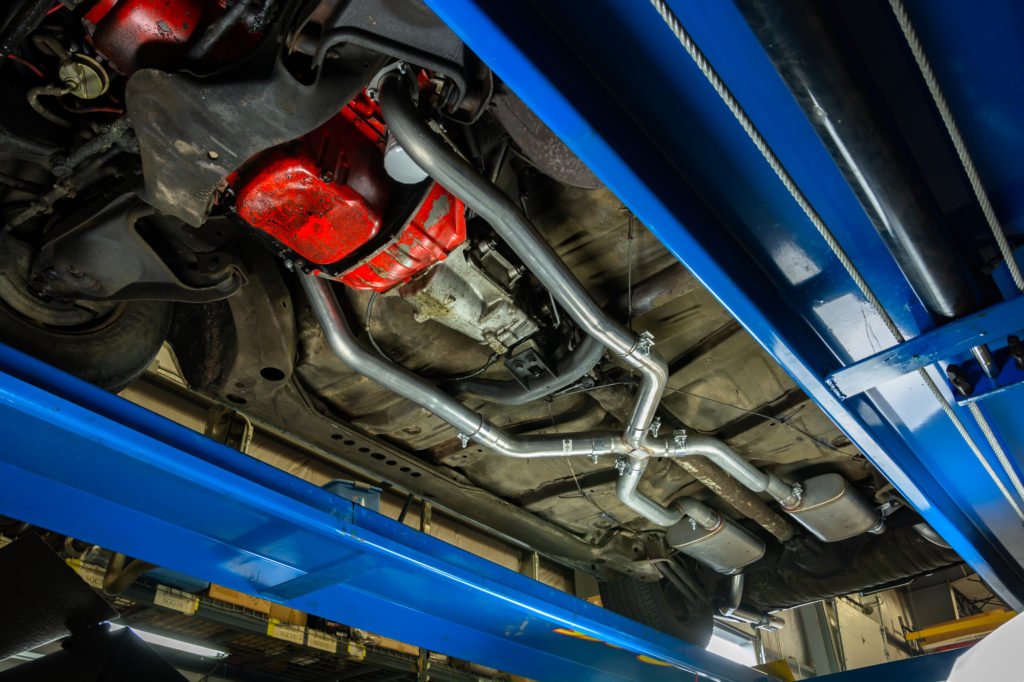“Improve engine efficiency and performance by maintaining your car’s exhaust system. Learn key tips for inspection, repair, and cleaning to enhance fuel economy.”
Your car’s exhaust system plays a vital role in emissions control, fuel efficiency, and engine performance. Over time, it can become clogged or damaged, leading to reduced fuel efficiency and poor engine performance.
Maintaining your exhaust system not only helps the environment but also keeps your car running efficiently and saves you money on costly repairs. Here’s everything you need to know to keep your exhaust system in top shape.
1️⃣ Regularly Check for Leaks
🔎 Why It’s Important:
✔ Exhaust leaks can result in engine performance issues, poor fuel economy, and potentially hazardous gases leaking into the cabin.
✔ Leaks in the exhaust manifold or pipes can cause excessive noise and reduce engine power.
🛠 How to Check for Leaks:
✅ Listen for any loud engine noises—a leaking exhaust will often make a ticking or popping sound.
✅ Inspect the exhaust pipes and connections for any visible holes or rust spots.
✅ If you suspect a leak, get a mechanic to perform a pressure test to locate and fix the issue.
🚨 Exhaust leaks should be fixed immediately to prevent safety risks and avoid engine damage!
2️⃣ Clean the Exhaust System Regularly
🔎 Why It’s Important:
✔ Over time, the exhaust system can accumulate carbon buildup, which can clog parts like the catalytic converter and reduce engine performance.
✔ Cleaning the system improves exhaust flow and can restore lost power and efficiency.
🛠 How to Clean the Exhaust System:
✅ Start the engine and let it warm up—this makes it easier to clean the system.
✅ Use an exhaust system cleaner to remove carbon buildup—these cleaners are available at auto parts stores.
✅ If your catalytic converter is clogged, consider using a fuel system cleaner or getting a professional cleaning.
🚨 Don’t ignore carbon buildup—it can lead to increased emissions and reduced engine power!
3️⃣ Replace Worn or Damaged Components
🔎 Why It’s Important:
✔ Worn-out parts, such as mufflers, catalytic converters, and oxygen sensors, can affect the engine’s efficiency and performance.
✔ Broken components can also increase emissions, leading to environmental pollution.
🛠 How to Replace Exhaust System Components:
✅ Inspect the muffler, catalytic converter, and oxygen sensors regularly for signs of damage or wear.
✅ If your vehicle’s emissions are higher than normal, it could be due to a faulty catalytic converter—have it replaced immediately.
✅ Replace rusted or cracked exhaust pipes to prevent further damage to the system.
🚨 Neglecting to replace damaged exhaust components can cause poor engine performance and may lead to expensive repairs later!
4️⃣ Check and Maintain the Oxygen Sensors
🔎 Why It’s Important:
✔ Oxygen sensors monitor the amount of oxygen in the exhaust gases, helping the engine control the air-fuel mixture.
✔ Faulty sensors can cause the engine to run inefficiently, reducing performance and fuel economy.
🛠 How to Maintain Oxygen Sensors:
✅ Check the oxygen sensors for wear and replace them every 60,000–100,000 miles.
✅ If you notice poor acceleration, increased fuel consumption, or poor idle performance, it could be due to a faulty sensor.
✅ Replace faulty sensors as soon as possible to restore the air-fuel ratio.
🚨 A bad oxygen sensor can reduce fuel efficiency by up to 40%!
5️⃣ Prevent Rust and Corrosion
🔎 Why It’s Important:
✔ Rust and corrosion can cause your exhaust system to deteriorate, leading to holes, leaks, and loss of efficiency.
✔ Salt and moisture, especially in colder climates, can speed up rust formation.
🛠 How to Prevent Rust:
✅ Regularly wash the undercarriage of your car, especially during the winter months when road salt is used.
✅ Inspect the exhaust pipes and muffler for rust and treat it with a rust inhibitor if necessary.
✅ Consider using a stainless steel exhaust system, which is less prone to rust and corrosion.
🚨 Corrosion can lead to holes in the exhaust and catalytic converter—check for rust regularly!
6️⃣ Drive Responsibly to Protect the Exhaust System
🔎 Why It’s Important:
✔ Aggressive driving habits, such as hard accelerations or heavy braking, put extra stress on the exhaust system and engine.
✔ Smooth driving reduces the chances of overheating the exhaust system, which can cause long-term damage.
🛠 How to Drive Responsibly:
✅ Avoid rapid accelerations—smoothly accelerate and decelerate.
✅ Drive at moderate speeds to reduce strain on the exhaust system and engine.
✅ Avoid idling for long periods, as it increases engine temperature and stresses the exhaust system.
🚨 Aggressive driving can increase the risk of damage to the exhaust system—drive smoothly for optimal performance!
Need an Exhaust System Check? Visit Onsite Auto Services!
🚗 Not sure if your exhaust system needs maintenance? At Onsite Auto Services, we offer exhaust system inspections, repairs, and component replacements to keep your car running smoothly and efficiently.
📞 Call us today or schedule an appointment online for a full exhaust system checkup!
“Improve engine efficiency and performance by maintaining your car’s exhaust system. Learn key tips for inspection, repair, and cleaning to enhance fuel economy.”
ExhaustSystem #CarMaintenance #VehiclePerformance #AutoRepair #MufflerReplacement #FuelEfficiency #ExhaustCheck #EmissionControl #CarCare #MechanicNearMe

